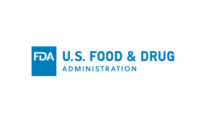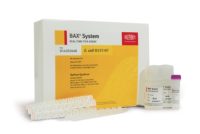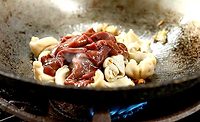Spotlight
One Health Certified™: The New Animal Protein Certification Program

At supermarkets everywhere, consumers are looking to packaging labels to learn more about the food they’re buying. This is especially true of animal proteins, where food buyers want to know that the animal was treated well and raised responsibly, and that the food products they serve are safe to eat. Farmers and producers work hard to do the right thing, continuously improving their operation for these animals and the food they produce. Proper care and welfare for animals leads to safe and healthy food, and responsible, adaptive operations contribute to a safe and healthy environment. The health of humans, animals, and the environment is indivisible.
So, how do animal-based-protein producers demonstrate their commitment to responsible animal care that betters human, animal, and environmental health?
A new animal protein certification program, One Health Certified™, addresses this need. The program, officially launched in January 2020, is a voluntary food animal certification open to all producers who are interested in demonstrating to consumers their commitment to responsible and transparent animal care practices, providing consistent operation standards across the spectrum of animal proteins.
One Health Certified is all-inclusive, with core principles that cover the entire animal-raising process and prioritize animal health and welfare. The program provides clear standards for producers to follow in five core areas:
-
Disease Prevention: A biosecurity program designed to help keep food animals free from disease.
Preventing the introduction of disease agents onto and between farms raising animals for food is a critical component of a comprehensive animal health plan. Veterinarian-designed and -monitored biosecurity practices are an integral part of maintaining healthy animals. The biosecurity program must include annual training for all farm owners and animal caretakers who regularly enter the area where animals are maintained. Owners and caretakers are required to follow biosecurity procedures for all aspects of farm operations at all times and must use appropriate biosecure personal protective equipment when working on their farm. -
Veterinary Care: A veterinary health program that includes a comprehensive animal health plan and mandates prompt treatment of sick animals.
Farmers must act at defined action thresholds to quickly respond to changes in the health status of animals under their care. If an infectious disease is suspected, then a licensed veterinarian must be notified and order appropriate treatment to remedy the situation. If a veterinarian-ordered treatment is administered, then a treatment outcome assessment is required. Finally, there is a feedback mechanism that requires the veterinarian to be contacted again if the expected response to treatment does not occur within a specified time period. -
Responsible Antibiotic Use: Restrictions on the use of antibiotics important in human medicine are intended to minimize the development of antibiotic-resistant bacteria important in human illness originating from food animals.
The goal of this program is to limit use of human antibiotics to as little as possible and only for as long as necessary to achieve the desired clinical outcome in infected or clinically ill animals. Those antibiotics may be administered only when prescribed by a licensed veterinarian with a valid client-patient relationship with the farm owner. Antibiotics important to human medicine may be used when deemed medically necessary to treat and control animal illness only and must be administered to the fewest number of animals possible when used. Proper withdrawal times after treatment must be documented prior to harvest to ensure that no harmful antibiotic residues remain in the meat.
Antibiotics that are considered not important to human medicine may be used to maintain animal health and welfare as prescribed by a licensed veterinarian according to U.S. Food and Drug Administration regulations. When used properly, these animal-only antibiotics greatly reduce the need to use antibiotics important to human medicine. -
Animal Welfare: A third-party-audited animal welfare program following established science-based standards.
Best animal care practices are required throughout the entire animal system. Farmers must follow guidelines of care outlined in approved science-based animal welfare programs that cover all areas of the animal production system from birth to harvest. Ongoing monitoring of animal welfare practices and internal audits completed by trained company personnel to ensure compliance are required. Participating producers must successfully pass a third-party audit to an approved animal welfare program at least once per year. -
Environmental Impact: Environmental measurements that calculate the carbon footprint to produce the meat and required nutrient management programs.
This program supports environmental stewardship practices related to the raising of food animals to minimize the impact of animal production on the environment. A life cycle assessment calculation to determine the carbon footprint of the animal production system is required as well as certified waste management programs for each farm. These measurements will be used to determine opportunities for evidence-based reduction targets for the respective animal protein groups and to drive improvements in future program revisions to reduce environmental impacts of participating producers.
Standards now available for the One Health Certified program are for chicken and turkey. Standards for additional animal proteins (such as pork, dairy, eggs, and beef) are in progress and will become available in the near future.
Program Advantages
PVP Third-Party Audits:
One Health Certified is a Process Verified Program (PVP), verified through the U.S. Department of Agriculture Agricultural Marketing Service (USDA-AMS). PVPs offer a unique way to market products to customers by conducting annual audits using clearly defined and transparent standards.
In contrast to other animal-based certification programs on the market today, One Health Certified standards are publicly available and every company is held to the same standards. USDA-AMS verifies each company’s adherence to the standards through routine audits. The advantage of completing the audits is the ability to use the widely recognized USDA seal and commodity-specific One Health Certified seal to market products.
Continuous Improvement:
One Health Certified is also unique in that the program standards are governed by a council of technical experts, with equal representation from animal agriculture, allied organizations, and universities. Standards undergo a scheduled review process for continuous improvement. This process ensures that program standards and guidelines can be accomplished in sustainable ways in commercial animal production settings.
One Health Certified is an outcomes-based certification, meaning producers are required to provide data and documentation in order to evolve and adapt the standards using comprehensive insights relative to the five core principles. This helps identify scientific research needs and opportunities, with the ultimate goal of improving resources available to farmers to best manage their animals.
Multiple Requirements:
According to market research, consumers prefer certification programs with multiple requirements. One Health Certified is the only comprehensive animal-based certification PVP that addresses several important concerns of animal care practices as described in the five core principles.
Many label certifications are focused on singular attributes in the production process and can create competing priorities that may at times be detrimental to animal health and welfare. For example, under a program such as No Antibiotics Ever (NAE), sick animals must be diverted to a different product stream if they are treated with antibiotics, even in a responsible manner. This can disrupt the supply chain for NAE product without enhancing the safety of the overall protein supply. One Health Certified is a systems-based certification program that does not create a two-tier product stream, ensuring a dependable and consistent supply chain for customers.
Consumer Recognition:
Producers using the commodity-specific One Health Certified seal to market animal-based products will demonstrate to their customers that they follow a sustainable and balanced program that strives to achieve optimal health outcomes for animals, people, and the planet. To avoid labeling confusion, the One Health Certified seal cannot be used with most other voluntary production label claims and seals. One exception allowed for dual-seal use is the Humane Certified label because it is one of the approved means of establishing credible animal welfare for One Health Certified.
Prioritizing Animal Care
Mountaire Farms, the nation’s sixth-largest chicken producer, was the first company to adopt the One Health Certified standards for chicken and believes the program is a significant evolution in animal-raising strategies. Dr. Deirdre Johnson, Mountaire’s director of animal health and welfare, is a board-certified poultry veterinarian with 11 years of experience in the poultry industry.
“Our poultry health team includes licensed veterinarians and qualified nutritionists that specialize in avian medicine and nutrition,” she says. “As veterinarians, we practice medicine in ways consistent with our veterinary oath, which pledges to protect animal health and welfare. As a mother, this standard brings me reassurance that the protein I provide for my son was raised mindfully in balance.”
Practicing veterinary medicine in a large and dynamic food animal production system can be challenging. Raising chickens following the guidelines outlined in the One Health Certified standard has now made the role of the veterinarian even more critical to the production system.
“Our veterinarians utilize a cloud-based platform in order to report, evaluate, and manage flocks requiring veterinary oversight,” says Johnson. “This allows us to communicate in real time on the health of a flock as well as trends in the whole population. As practitioners of population medicine, we use this data to make decisions to achieve optimal animal health outcomes.”
Consumer Feedback
Reaction from retail customers to the One Health Certified program has been overwhelmingly positive. Consumers demand more transparency about the way that food animals are raised, and this public program provides that reassurance with the additional confidence of knowing that compliance with program requirements is verified by annual government audits conducted by USDA-AMS.
Mountaire Farms believes that One Health Certified raises the bar on animal production and satisfies the needs of conscious consumers. “Shortly after the program was launched, over 85 percent of the grocery chains that we produce private label (store brand) chicken for added One Health Certified labels to their products,” notes Mountaire Farms. “These early adopters recognize the added value that this certification program offers to their brand.”
Prior to the official launch of the program in January 2020, One Health Certified also received positive feedback from reviews with 32 large retail/wholesale customers and many federal government agencies. In fact, a survey revealed that 83 percent of consumers are likely to buy products with the One Health Certified label when shown a program description.
Program Management
One Health Certified is managed by the National Institute of Antimicrobial Resistance Research and Education (NIAMRRE) based at Iowa State University. NIAMRRE is a cross-sector member organization that utilizes a One Health approach to provide local, national, and international leadership in the fight against antimicrobial resistance.
The health of humans, animals, and the environment can’t be separated. This new option for animal-based protein producers to better demonstrate their commitment to responsible animal care is a step in the right direction for everyone.
Visit www.onehealthcertified.org to learn more or participate in the program. The official list of One Health Certified-audited and -approved producers and organizations is maintained by USDA-AMS and is available to the public at www.ams.usda.gov/services/auditing/one-health.
Paul Plummer, D.V.M., Ph.D., DACVIM, DECSRHM, is the executive director of NIAMRRE.
Kristine Johansen, Ph.D., M.B.A., is the associate director of external relations at NIAMRRE.
Looking for a reprint of this article?
From high-res PDFs to custom plaques, order your copy today!






